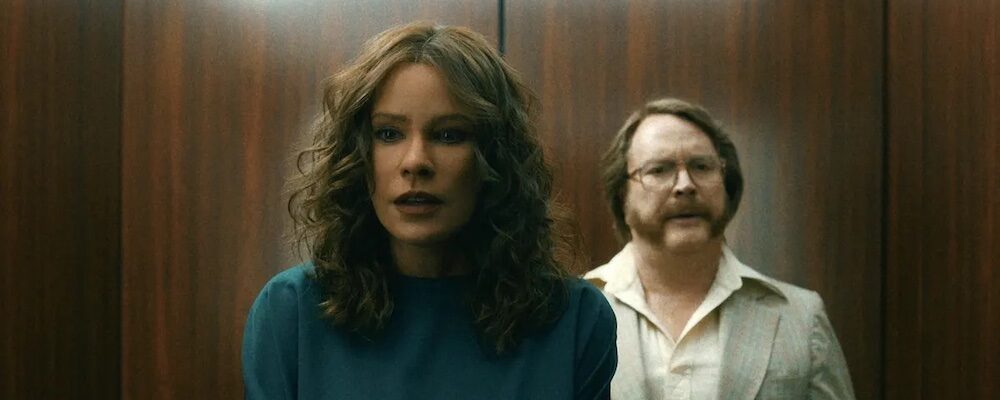‘Griselda’: A Fierce Sofia Vergara Makes Narco Clichés Almost Feel Fresh
Alci Rengifo
Netflix’s “Griselda” opens with a quote by infamous Colombian drug lord Pablo Escobar claiming the only man he ever feared was a woman, Griselda Blanco. This bit of gangland lore is meant to hype us up for yet another tale of Latin Americans running coke, piling up corpses and looking flashy while evading the law. The excuse is that it’s a true story, and indeed Griselda Blanco was real, developed quite the reputation in the drug underworld and was eventually assassinated in 2012. So it’s hard to resist the lurid fascination of the story, much less when the lead role is inhabited by Sofia Vergara. It is Vergara who makes this limited series compulsively watchable, creating a woman who is empathetic but also damaged by violence.
We first meet Griselda in 1978 as she arrives in Miami on the run with her sons, Ozzy (Martín Fajardo), Uber (Jose Velazquez) and Dixon (Orlando Pineda). Back home in Medellin, Colombia, Griselda had been the partner of a drug lord who eventually forced her to sleep with his brother to pay off a debt. Griselda made sure to steal a kilo of cocaine which she had snuck across customs. Her plan is to sell the coke and have enough money to start fresh. After facing off with established local Latin thugs like Amilcar (José Zúñiga), Griselda comes up with a new plan. She flies in a squad of fellow former prostitutes from Colombia to become her dealers while using her contacts to get a steady supply of cocaine. At first she seeks to be a supplier to the bigger local bosses, but when the Ochoa brothers of the Medellin cartel become too difficult to deal with, Griselda figures she can just take over.
“Griselda” is the latest from Eric Newman, Doug Miro, Ingrid Escajeda and Carlo Bernard, who all worked on the studio’s hit “Narcos” series. To their credit, they bring in an actual Colombian director, Andrés Baiz, to helm this limited series that feels like a smaller bookend to their magnum opus. There isn’t much emphasis on global politics or capitalism, as was done so well in “Narcos: Mexico.” At its most fascinating, “Griselda” profiles a woman who did indeed climb her way up from the wretched bottom of Colombian society, only to find status in an equally dangerous terrain. The great force of the show is Vergara, who swims among the clichés with a memorable performance. Her acting choices combine with stellar makeup work to make us forget the bouncy star of “Modern Family,” capturing the unnerving edge of a woman who has been abused, beaten down and turned into a hardened operator. Look at how Vergara smiles in certain shots, revealing the murderous instinct within. If only the writing had taken more seriously the task of exploring the character as a byproduct of a ruthless, misogynist society. This is the kind of criminal personality that deserves a whole origin season.
Much of the rest of “Griselda” will be welcoming and familiar to viewers who already devour anything involving cartels and guys in gold chains sitting around talking about percentages. Vendettas get settled with plenty of shootings. The showrunners try to find a bit more balance by bringing in June (Juliana Aidén Martinez), a Latino Miami cop who is also a single mother and deals with the office’s misogyny and racism. She doesn’t amount to much beyond police clichés because “Griselda” gets too stuck on cocaine autopilot. Pick a scene out of “Narcos” or movies like “Blow” and it’s there but with Vergara as the focus. Griselda assembles a crew of devoted henchmen like Rivi (Martin Rodriguez), who of course might have a hint of becoming a love interest. “Villains” are in the form of Papo (Maximiliano Hernández), played like the kind of super violent beast you want to die. By episode three, Griselda is being called “The Godmother” or “Madrina” by everybody.
For some Latin viewers the conflict here will, of course, be how shows like “Griselda” promote representation through the recycling of crime stories as a vehicle for prominence. The era this show takes place in was also full of much radical political activism in Colombia with guerrilla groups like the M-19 carrying out daring raids and making headlines. Miami was a hotbed of Cold War intrigue with revolutions in Nicaragua and Grenada flaring up. Writers like Gabriel Garcia Marquez were still more than active. Shows of course seek to be entertaining, but the industry still feels like it views the idea of a “strong woman” entailing a drug baron who confuses caring for her community and kids as carrying out extortion and murder. A grittier, deeper look at Griselda Blanco would also explore the society that made her and why the poor of Latin America view the drug trade as a route to denied riches. “Griselda” wants to be a pop feminist parable and “Carlito’s Way” at the same time.
And yet, it’s still wildly entertaining. You can’t deny the skill of the acting and the style of the execution. Sofia Vergara’s performance alone is worth watching and makes us wish she’d appeared in shows like “Breaking Bad.” The last few episodes of this series flirt with the madness of that show, giving Griselda an almost soapy, operatic scope as the bodies pile up, she gets more powerful and therefore makes more enemies. It’s never a bore and you can forgive those moments where the violins kick in, Griselda raises her cigarette in the night air and hushes, “the Godmother.” That’s always been the secret appeal of these stories. When crime pays, it has the potential of making anyone from anywhere feel like royalty, even if the price is too high.
“Griselda” begins streaming Jan. 25 on Netflix.

